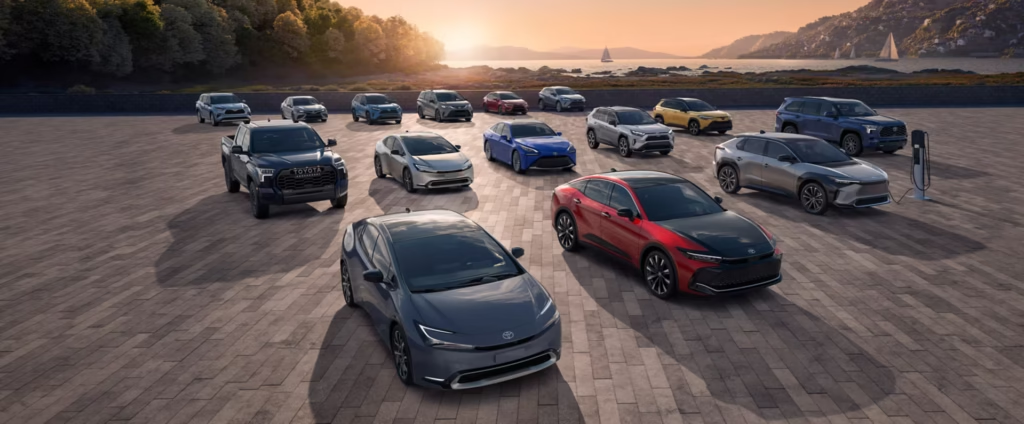Toyota Motor Corporation has announced that its state-of-the-art electric vehicle (EV) battery manufacturing plant in Liberty, North Carolina, is completed and ready for full operation. The plant will be operated by Toyota Battery Manufacturing North Carolina (TBMNC) Inc., which will be the first in-house EV battery production facility outside of Japan and the eleventh in the United States. In total, the company will start the shipment in April 2025, and in this way challenge Tesla’s established dominance in America’s electric automobile market.
A Strategic Move in the US EV Market
Almost all the investments totaled to a startling amount of near $14 billion, and in full capacity would employ about 5,000 people. Producing lithium-ion batteries for both HEVs (hybrid electric vehicles), PHEVs, and BEVs (battery electric vehicles) will further cement its hold on what is now gradually changing to emerge as an increasing trend.
The recent investment made by Toyota signifies long-term visions related to sustainable mobility and electrification. Establishing an in-house EV battery production line in North Carolina would thus further enhance its commitment toward a reduction in carbon emissions while assuring the secure supply chain of its ever-increasing electric lineup.
Competing Against Tesla’s Market Leadership
The aggressive push by Toyota into EV battery manufacturing is coming when Tesla is dominating the US electric car market. While it might be unable to step up its games with its gigafactories and highly vertically integrated production, the firm’s new plant might signal a big competitive move in Toyota’s book. Toyota’s experience in hybrid and plug-in hybrids, coupled with a huge investment in pure EV technology, puts the company in a very serious position to break into Tesla’s monopoly hold.
The new investment fits into the overall electrification strategy of Toyota, which is planning to bring at least 30 EV models to the global market by 2030. With the Liberty facility now in operation, Toyota can dramatically increase its battery production, which would allow it to compete not only in the hybrid segment, where it has been strong for decades, but also in the full EV market, which Tesla has dominated for years.
Toyota’s Expanding US Manufacturing Presence
Toyota has an established manufacturing network in North America, with assembly plants in Alabama, Indiana, Kentucky, Mississippi, and Texas, besides the production facilities in Canada and Mexico. Last year, the company sold 2.73 million vehicles in North America, out of which 2.33 million units were sold in the US alone. The regional vehicle production of the company stood at 2.05 million units, out of which 1.27 million units were produced in the US.
So far, Toyota has put a total investment of $49 billion into the US, and claims to have helped support more than 280,000 jobs across the industry. The new Liberty facility is projected to further enhance the US economy by providing thousands of new job opportunities while also boosting Toyota’s competitive edge in the EV space.
A New Era of Electrification
Entering the game is Toyota, taking the giant step of starting up large-scale battery production in the US. Since Tesla will undoubtedly remain the visible face of this revolution, hybrid heritage, along with the thrust for improvement, might alter this competitive balance as it moves to a long-lasting and efficient battery solution platform, aiming at winning the hesitators among consumers who could still take on the electric switch.
With the US government increasing its quest for stronger and stricter emission controls alongside higher penetration of electric vehicles, Toyota’s new plan could not be any more timely. Not only is it building further away from dependence on battery imports from abroad but further cements a grip on the rapidly expanding US electric vehicle market.
Indeed, Toyota is investing $14 billion in the North Carolina EV battery plant, which signifies that it will face Tesla in the American electric vehicle market. Due to the fact that the plant will begin operations in April 2025, the battle for dominance in electric vehicles in the US is going to heat up and offer more choices and innovations to the consumers. With Toyota continuing to ramp up its EV production, it will be interesting to see how Tesla responds to this growing competition from one of the world’s most successful automakers.

